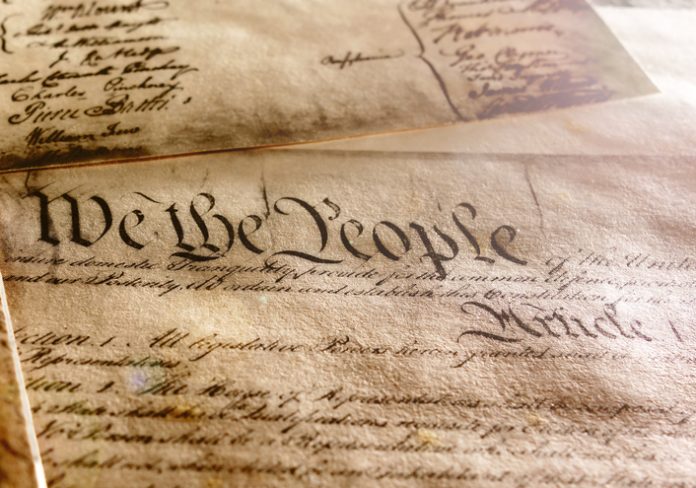By Mike Sabo
At the heart of the Matthew J. Ryan Center at Villanova University is an unabashed love of America and an open acknowledgement of its greatness, says director Steven F. McGuire. The Ryan Center, he notes, was founded to take seriously American history, traditions, and principles and to promote the study of free societies more generally.
The center is named after a Villanova alumnus who served for over 40 years in the Pennsylvania House of Representatives and was widely respected on both sides of the aisle. Before assuming office, Matthew J. Ryan was himself a teacher and “believed that civic education is essential to the maintenance of a strong democratic citizenry and the perpetuation of a free citizenry.”
McGuire says that the center offers students a “rigorous study of our founding political documents and our political institutions, the history and political thought of our country, as well as the Western political thinkers and history that have influenced our political development.” This idea of civic education, he notes, stands apart from the kind of classroom instruction becoming popular today, which is focused more on political engagement.
“Active citizens and political leaders are going to be engaged,” McGuire says. “But in order to be effective and serve the public good, they need knowledge and virtue.”
With a Ph.D. in politics and a background in teaching, McGuire joined the center in 2016 and eventually succeeded its founding director, Colleen A. Sheehan. He describes the center’s top goals as educating students about the “rights and responsibilities of citizens and the art of political leadership,” promoting “free speech and political and intellectual diversity on campus,” teaching about “liberal and civic education in the Western” – and especially the American – tradition, and creating opportunities for students and members of the community “to learn about and discuss politics and political philosophy.”
The center’s key offering is its fellowship program, a “student-led group dedicated to free and open discussion of contemporary political issues, political philosophy, statesmanship, and the history and principles of American government,” as its website describes it.
Benefits of being a fellow include participating in weekly student debates on contemporary political issues and larger questions in American and Western political thought. Fellows also attend its annual student conference that features discussions among students and faculty regarding foundational questions. Additionally, fellows have the opportunity to apply for internships, interact with the center’s faculty associates and visiting scholars, and work with center faculty as they plan and invite speakers to campus each academic year.
McGuire notes that fellows often participate in special events. In 2019, for example, a group of students attended Supreme Court Justice Neil Gorsuch’s lecture in downtown Philadelphia. This academic year, McGuire says that students traveled to Gettysburg to study the statesmanship of Abraham Lincoln.
When students graduate, they can remain in the center’s orbit by becoming members of the Ryan Society, a group of alumni who “continue to promote free institutions and the public good in their everyday lives.” Alumni have gone on to serve in the law, the banking industry, and the Marine Corps and Navy.
Civic education, McGuire argues, “should also be liberal education.” The center’s public events, which any student from the university or local community can attend (an archive can be accessed here), “invite students to think for themselves, ask questions, and try out their own ideas.” On Constitution Day 2021, for example, the center hosted William Ruger, a foreign policy expert who discussed the Constitution’s view of war powers in the context of the end of the war in Afghanistan.
Additional offerings include a podcast, “Political Animals,” sponsored by the Jack Miller Center. It has featured guests that span the ideological spectrum, including Thomas Chatterton Williams, who discussed freedom of speech, cancel culture, and race, and political thinker and Washington Post columnist Henry Olsen, who shared his thoughts on the future of the Republican Party.
McGuire hopes that through the center’s promotion of both civic education and liberal education, students will be able to practice the virtues necessary for free societies to flourish.
Originally published by RealClearWire. Republished with permission.









[…] post The Matthew J. Ryan Center: Where Civic and Liberal Education Meet appeared first on Heartland Daily […]